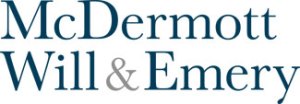
On January 10, 2014, the U.S. Supreme Court agreed to hear an appeal by Pom Wonderful LLC against The Coca-Cola Company. The Court will examine whether Pom can bring a federal Lanham Act false advertising claim against a Minute Maid juice product label that had been approved by the U.S. Food and Drug Administration (FDA). (Pom Wonderful LLC v. The Coca-Cola Co., U.S. Supreme Court case no. 12-761).
At issue in the lawsuit is a Minute Maid label for “Pomegranate Blueberry Flavored Blend of 5 Juices.” The label presents the words “Pomegranate Blueberry” in larger type than the remainder of the phrase. Pom claimed that the label was misleading because the product contains 0.3 percent pomegranate juice and 0.2 percent blueberry juice.
A California federal trial court and the 9th Circuit federal appeals court in California both ruled that Pom could not bring a Lanham Act false advertising claim against the label, since it had been specifically examined and approved by the FDA. Pom has argued that the decisions were contrary to established law in other U.S. courts, and that federal regulations establish a floor –but not a ceiling — on what an advertiser is required to do to avoid a claim that the advertising is false and misleading. Coca-Cola has argued that product labeling that is specifically authorized by the Food, Drug and Cosmetic Act (FDCA) and approved by the FDA cannot be charged as false or misleading under another federal statute such as the Lanham Act.
Although the question before the Supreme Court is whether a private party can bring a Lanham Act claim challenging a product label regulated under the FDCA, the Supreme Court’s decision could potentially have significant implications for the alcohol beverage industry. For example:
- If the Supreme Court rules that a competitor cannot bring a Lanham Act claim against a label that has been approved by the FDA, a natural question is whether the same rule will apply with regard to alcohol beverage labels that have been reviewed and approved by the Alcohol and Tobacco Tax and Trade Bureau (TTB) (by its terms, the Federal Alcohol Administration Act does not preempt the Lanham Act); and
- If a Lanham Act claim would be barred against labels approved by TTB, a question may arise about whether a Lanham Act claim would be barred on elements of the label that TTB does not specifically review as a matter of policy – such as contrast, size and placement of label elements.
The Supreme Court is expected to hear argument this spring and decide the case by June 2014. Depending on the decision, alcohol beverage industry members could find they have additional insulation against a federal false advertising claim, but they may likewise be limited in bringing a federal false advertising lawsuit against a competitor’s label that has been approved by TTB.
Article by:
Of:
